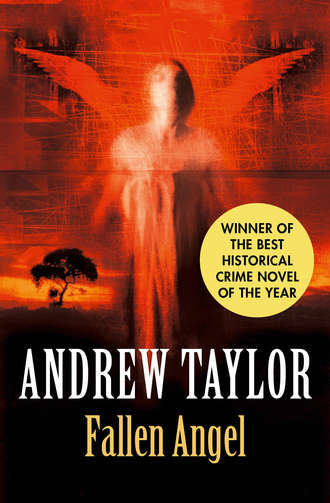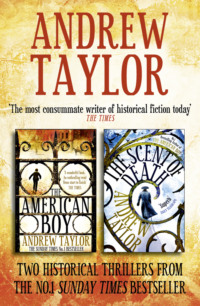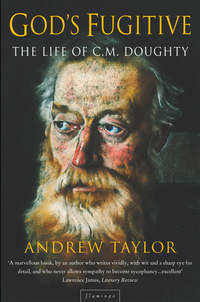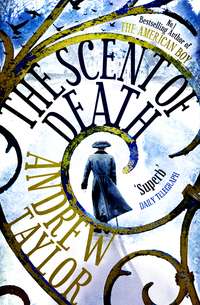
Полная версия
Fallen Angel
Oliver returned with the sugar. He made a performance out of pouring the coffee, reminding Sally incongruously of an elderly housewife, a regular at St George’s, who had invited Sally to tea. His neat, finicky movements contrasted with the chaos in what she’d seen of his home.
‘Have you had the house on the market long?’ she said brightly.
‘Since Sharon left.’ His voice was unemotional. ‘We’re dividing the spoils.’
Sally lost interest in Oliver’s problems. She warmed her cold fingers on the steaming cup of coffee and stared into its black, gleaming surface. She wished she could see Lucy’s image there, as in a crystal ball. The reality of her loss swamped her. It was all she could do not to howl.
‘It’s much too big for me,’ Oliver was saying. ‘We bought it when we thought we might have kids.’ He paused, perhaps aware that children were not the best subject to mention. ‘I suppose I could take lodgers, but I don’t much fancy having strangers in the house.’
‘I wouldn’t, either.’ Sally made an enormous effort to concentrate on what he was saying. ‘So you’ll look for a flat or something?’
‘Got to sell this place first. It means there’s lots of room for you and Michael, anyway. And for his uncle, or whoever he is.’
‘Godfather.’ She registered in passing another of Michael’s failures in communication. ‘His name’s David Byfield.’
‘As long as he doesn’t mind roughing it. I can manage a bed and a sleeping bag for him, but sheets and curtains are a bit awkward.’
‘I’m sure it will be fine. It’s very kind of you.’
Oliver stirred his coffee, the spoon scraping and tapping against the inside of the mug. The lull in the conversation rapidly became awkward. Oliver said all the right things, but his house was unwelcoming and she hardly knew him; and no doubt the Appleyards’ invasion had ruined his plans for Christmas. She regretted their decision to come here. The old irrational doubt – that Lucy might not be able to find them if they weren’t at home – resurfaced. She would look a fool if she changed her mind, but she no longer cared about that.
‘I’m sorry,’ she burst out, ‘I think I’d better go back to Hercules Road.’
‘I’ll drive you, if you like. But would you rather wait until Michael comes back? He may be on his way already. And so may David.’
‘I don’t know what to do for the best.’
‘It’s not easy. But don’t worry about Lucy coming back to Hercules Road and finding no one there. Maxham will make sure that won’t happen. Why don’t you have some more coffee before you decide?’
Automatically she passed her mug to him.
As he handed it back to her, he said, ‘What exactly did they find at that church?’
She stared at him. ‘No one told you?’
‘Not in any detail. There wasn’t time.’ His lips twitched. ‘Maybe everyone assumed that someone would do it. But perhaps it’s too painful for you? I’m sorry – I shouldn’t have asked.’
‘It’s all right.’ In a brisk, unemotional voice she told him about the package in the porch of St Michael’s. ‘They’re keeping the details to themselves at present. And there was something else: there’s a pub round the corner, and the landlord thought he saw someone turning into Beauclerk Place just before midnight. Wearing a long coat – could have been a man or a woman.’
‘Is he trustworthy?’
‘How can you tell?’
‘You can’t. Or not easily. You get all sorts in an investigation like this: people so desperate to help that they invent things; people who want to feel important; even people who think it’s all a bit of a joke to waste police time.’ He smiled anxiously at her. ‘You must think me very insensitive. But in the long run it’s wise to be realistic, not pin your hopes on that sort of evidence.’
‘What hopes?’
He ignored the question. ‘There’s also the point that even if there was someone there, he might have had nothing to do with the case.’
‘Then who was it? Besides the church, I think there’s only offices in Beauclerk Place. No one should have been there on a Saturday night.’
‘As far as we know. People do work odd hours. Anyway, it could have been someone looking for somewhere to doss down. A drunk, a drug addict. One of the homeless, and God knows there are plenty of those. Or just someone who took a wrong turning.’
To her surprise and embarrassment, she found herself smiling. ‘You’re a great help.’
There was a glimmer of an answering smile. ‘The landlord’s vagueness is a good sign. It suggests he’s not making it up. And it was only last night, so he’s not likely to have got confused about the day. But where does that leave you? A man or a woman turning into Beauclerk Place.’
‘It has to be a man. A woman wouldn’t do that sort of thing, not to children.’
Oliver shook his head. ‘What about the Moors Murders? Myra Hindley was in it just as much as Ian Brady.’
The weight of the suffering, past and present, oppressed her. Sally stood up and walked to the window. She was aware that Oliver was watching from his armchair. She stared at the rows of parked cars and the blank windows of the houses opposite. No journalists here, not yet.
‘I’m sorry. I shouldn’t have said all that.’
‘I wanted to hear.’ Sally turned back to the room. ‘How common is it?’
‘That women offer violence to children? It’s much more widespread than you might think. Some of it you can almost understand: it’s the product of circumstance.’
‘Mothers trapped with a small child in a bedsitter – that sort of thing?’
‘Exactly. Or under the influence of a man. But some of it isn’t like that. It’s willed.’
Willed. Someone had decided to take Lucy, decided to cut off the hand of another child, decided to chop off the legs of a third, decided to leave them where they would be found. How did you explain that? You couldn’t justify it, Sally thought, any more than you could pardon it.
‘Evil,’ she said quietly.
‘Evil? What do you mean?’ Oliver said sharply. ‘I don’t mean to be rude, but that’s the trouble with clergy. Anything nasty they can’t understand – no problem, they just label it evil. The work of the devil. All part of the divine plan, eh? Ours is not to reason why.’
‘Maybe you’re right. Maybe we don’t try hard enough to understand. But right now I don’t want to try. I just want Lucy.’
‘Sally – I’m sorry. I didn’t mean to –’
‘It doesn’t matter.’
She sat down again and sipped her coffee. It was cold here, in this unloved room in an unloved house. For an instant she thought she heard the thrumming of wings. She caught herself glancing up at the ceiling, as if expecting to see a giant bird hovering above her head. I must not go mad. Lucy needs me. Oliver was still watching her. His concern irritated her.
‘You’re having a hell of a time at present,’ he told her in a low, sympathetic voice which brought her to the verge of screaming at him. ‘All this on top of Michael’s problems.’
‘Yes.’ Sally’s mind made an unexpected connection: Oliver’s phone call two weeks ago on that disastrous Saturday when Uncle David had come to lunch. She looked down, afraid her eyes would betray her. Suddenly cunning, she murmured, ‘Poor Michael.’
‘Don’t worry too much. Maybe they’ll drop the complaint.’
‘And if not?’
‘Hard to tell.’ This time he avoided her eyes. ‘Michael’s record is in his favour. And most people feel a lot of sympathy. We’re all tempted.’
‘But Michael didn’t resist.’ It was not quite a question: more an intelligent guess.
‘Obviously he acted on impulse and under great provocation.’ Oliver sounded like counsel for the defence. ‘It’s not as if he makes a habit of hitting people. And in the circumstances …’ His voice trailed into silence. Then: ‘I assumed he’d have told you.’
‘I’m sorry,’ Sally said. ‘I shouldn’t have tricked you. But will you tell me the rest? Who did he hit, and why?’
‘A man he’d just arrested.’
‘But why?’
‘Why the arrest? Handling stolen goods. Possession of a firearm. But that wasn’t why Michael hit him. This guy liked putting out cigarettes on a toddler’s arm. His own daughter. And he was acting as if it made him some kind of hero. A hard man doing what hard men do. So Michael punched him in the mouth: to shut him up, Michael said.’
Sally sat there, her head bowed, and tried to pray.
‘I’d have done the same.’ Oliver leaned forward in his chair. ‘It’s possible that the man was trying to provoke Michael into taking a swing at him. The lawyers on both sides are hoping for a deal. That was what the meeting on Friday morning was about.’
She remembered finding Michael in the flat at lunch time on Friday when he should have been at work; he had been drinking lager, which he never did on duty. Those and other signs had been there. She should have asked questions.
‘Don’t blame him,’ Oliver said. ‘He probably didn’t want to worry you.’
Sally shook her head. ‘It’s as much my fault as his.’ Now as then. It was abruptly clear to her that the kidnapping did not release her from other responsibilities.
‘It all seems irrelevant now,’ he went on.
She did not want to talk about it with Oliver. ‘Do you mind if I make a phone call? I ought to get in touch with my boss.’
Oliver took her to a room at the back of the house. The only furniture was a dark, ugly dining table and a set of matching chairs. On the table was a phone, a computer, files and books. She tapped in the number for St George’s. With luck, Derek and Margaret would still be in church. In her mind she composed a warmly impersonal message for the answering machine.
‘St George’s Vicarage. Derek Cutter speaking.’
‘Derek – it’s Sally.’
‘My dear, how are you? I tried ringing the flat before church, but –’
‘I – we had to go out.’
‘Any news?’
Sally hesitated. ‘Not really.’
‘We prayed for you today.’
Then it didn’t do much good. ‘Thank you. It’s a great comfort.’
‘Now, is there anything we can do in other respects? Margaret was saying only at breakfast that you shouldn’t be left to cope with all this by yourselves. Why don’t you come and stay with us? At times like this friendship can be a very real blessing. Besides, on a purely practical level –’
‘In fact, we’ve decided to stay with a friend of Michael’s.’ Knowing that she was accepting another’s offer while rejecting Derek’s made her feel even guiltier.
‘Ah. Well, the offer’s still open.’
‘It’s so kind of you.’ Sally heard the insincerity in her voice and tried to banish it. ‘Do thank Margaret. And – and give her my love.’
‘Would you like a word with her? She’s here.’
‘I’d better not. I’m in rather a hurry. And we want to leave the line free.’
‘Of course. But shall I take your phone number? Just in case something comes up at this end.’
Fortunately the number was on the base unit of the phone. Sally read it out to Derek.
‘Shall I phone you this evening?’ he suggested. ‘Unless you’d rather phone me. Just for a chat.’
‘I’m not sure.’ Sally’s good resolutions dissolved. ‘We may be out. I’m afraid I have to go now.’
She said goodbye and put down the phone. It was much easier to think charitably about Derek when you weren’t dealing directly with him. At least she hadn’t actually lied. Her conscience prodded her: there are silent lies as well as spoken ones.
Thanks to Derek, Sally realized, or rather thanks to her dislike of Derek, she hadn’t thought about Lucy for at least a moment. But now her mind was making up for lost time. Sally stumbled into the hall and followed the sound of rushing water into the kitchen.
The room was clean and tidy, the real heart of the house. It had been recently redecorated. Oliver was washing up the coffee mugs.
‘Would you mind if I went out for a walk?’ she heard herself saying. ‘I’ve been cooped up ever since this happened. I feel I need some air.’
That wasn’t the entire truth, either: she also needed to find a church, to try to put right what had gone wrong inside St Michael’s.
Oliver fussed over her, establishing first that she wanted to go by herself, second that her coat was warm enough and third that she did not need a street map.
‘What happens if you need to phone? You’ve got a mobile, haven’t you?’
‘Yes, but I left it at home. Besides, I’m only going out for a few minutes.’
Oliver was treating her like a child, she thought crossly: nanny knows best. Couldn’t he understand that she wouldn’t be long because there might be some news of Lucy?
At last he let her go. Outside the air was raw, the wind cutting at her exposed skin. She turned left without a backward glance, walking briskly down the street in the direction of the church, hands deep in the pocket of her jacket. The road was seedier than she had first thought: the cars were older, the gutters lined with litter; satellite dishes projected from crumbling brickwork, pointing in the same directions like flying saucers on parade; and the curtains in many of the windows were ragged and unmatching, always a giveaway.
A line of railings sealed the far end of the road. A gate, standing open, pierced the railings and on the other side was the churchyard. It was lunch time, so the morning’s services would have finished. The door might well be locked, but with luck the key holder would live nearby.
The church itself was partly masked by a screen of yews and hawthorns which ran parallel to the railings just inside them. The nave and choir were a single, brick-built oblong with an apse projecting from the east end. Early nineteenth century, Sally thought automatically, perhaps a little older. The base of the tower, a mass of weathered masonry at the west end, must have belonged to a previous church on the site; the upper storeys were Victorian gothic.
She slipped through the gateway and into the churchyard. Almost immediately she realized that she had made a mistake. She would find no consolation here. Most of the gravestones had been removed, though a few remained propped up against the wall of the church. Tiles were missing from the roof. Two of the windows near the east end were broken, despite the grilles which covered them. A network of tarmac paths criss-crossed the muddy grass, with black litter bins standing like sentinels at the junctions. Under the drab sky the only signs of vitality and warmth came from the brightly coloured crisp packets and chocolate wrappings that drifted among the dog turds.
Sally followed one of the paths round the east end of the church. On this side of the churchyard there were benches, more trees, more railings, beyond which was the main road, heavily used by traffic even on Sunday. She slowly walked the length of the church, deciding to make a circuit of it before returning to Oliver’s.
The gates of the south porch had been boarded up and secured with two padlocks. In the angle between porch and nave she noticed a pile of what looked like human excrement. Adolescents had been active with their aerosol sprays, displaying their limited grasp of literacy with the usual obscenities and tribal slogans.
Were such people human like herself? And if they were, what about child molesters and child murderers? Or the nurse who killed the children in her charge, or the father who stubbed out cigarettes on his baby’s arm? Or, worst of all, the person who had stolen Lucy to practise unknown obscenities on her mind and body. ‘Christ knows,’ Sally muttered aloud, knowing that old certainties had grown misty and insubstantial.
The path narrowed as it turned into the dark, urine-smelling ravine between the tower and the blank gable wall of the terrace of shops on the western boundary of the churchyard. The shadow of death. Sally accelerated. Just as she was about to emerge into the wider spaces of the churchyard beyond, a man stepped round the corner of the tower and blocked her path. She stopped, her heart thudding.
He was almost six feet tall, with dark hair, a broken nose set in the middle of a pale, lined face, and a long, thin body. Despite the cold, he was wearing a T-shirt, a pair of thin trousers, and muddy trainers. The T-shirt had once been white, but was now stained and torn at the neck. He dug his hand in his pocket.
Sally took a step backwards, nearer the dangerously enclosed space between the tower and the wall. With a speed that caught her unawares, the man moved to her right and then drew closer to her, forcing her back against the wall of the tower. She put her hand in her jacket pocket and felt for the money which Oliver had given her in case she needed to phone: two or three pounds in change.
He was very close to her now. His mouth hung open, revealing the rotting teeth within. For an instant she smelled his breath and thought of open graves. He stretched out his arm towards her. Suddenly she realized that the lips were pulled back into a smile.
‘Do you believe in Jesus? Do you?’
‘Yes.’
‘You’ve got to really believe.’ He looked in his forties, but was probably younger than she was. He had a Midlands accent and spoke in a near whisper, breathless as if he had been running. ‘Listen, just saying you believe isn’t enough.’
‘No.’
‘Are you sure? Remember, Jesus can see into your innermost soul.’
‘Yes. Do you believe?’
‘He chose me. Look, he put his sign on me.’
The man pointed to the inner edge of his left forearm. Among the scars and goose pimples was a red cross in faded felt-tip, surrounded by a wavering wreath of letters which made up the words JESUS SAVES.
‘He pulled me up from the gutter. He sent an angel to wash away my sins in the water of life.’ The man stretched his arms wide. ‘Look – I’m clean. Like driven snow.’
‘I can see that.’
‘You must be clean, too. Otherwise you’ll never enter the Kingdom of Heaven.’
Sally took a step to her left, trying to outflank him.
‘You must pray with me. Now.’
‘I must go. My husband –’
He came even closer. ‘You haven’t much time. The Kingdom of God is at hand. We must kneel.’
He touched her shoulder, trying to force her to her knees. Revulsion welled inside her and she reacted instinctively: she slapped his face with all the strength she could muster. His skin was rough with stubble, like flabby sandpaper.
The man gasped, his face a parody of dismay, and stepped backwards. Sally flung herself through the gap between his arm and the wall of the tower. His hand gripped her wrist. She screamed, a long howl of fear and anger, and dragged her arm free.
‘Piss off, you shithead!’ Sally heard herself shrieking.
She broke into a run, crouching low, and escaped. The churchyard stretched before her. She glimpsed the railings through the branches of the trees. The panic affected her vision: nothing was fixed any more; the path, the trees, the grass – everything pulsed with a dull, menacing life, as if visible reality were nothing more than the skin of an enormous, dozing monster.
At the gateway she glanced back. The man was not pursuing her. The churchyard was empty. She clung to a railing and tried to get her breathing back to normal. The monster slipped away. Her body felt limp, as if each muscle had been individually drained of energy. Now the crisis was past, she could hardly walk, let alone run.
‘Sally – ?’
She turned. Oliver was jogging down Inkerman Street towards her. She stared blankly at him. Her legs could barely support her weight. A moment later he was beside her, his face dark and angry.
‘What happened?’
‘There was a man …’
‘Easy, now. It’s all right.’ He put his hand under her arm. ‘A mugger?’
She shook her head and began to laugh with the irony of it. Once she started laughing, it was hard to stop.
‘OK, Sally. Calm down. It’s OK.’
Oliver had his arm round her now. He half-carried, half-dragged her towards a bench a few yards away. They sat down. Trembling, she hugged him.
‘What happened?’
‘This man – he tried to convert me.’
‘Are you hurt?’
‘No. Oliver, I swore at him. I hit him.’ She started to cry.
His arm tightened around her. ‘Listen. Your reactions are out of kilter at present. It’s hardly surprising.’
For a moment she thought Oliver’s lips were nuzzling her hair. She said angrily, ‘He shouldn’t have been on the streets. If we had a halfway decent society someone would be looking after him properly.’
‘A mental patient? Pushed back into the community?’
‘It’s possible. There were knife scars on his arms. I should go and find him. He can’t have got far. I –’
‘No. You’re in no fit state to go after anyone. In any case, we don’t want to go too far from the house.’
‘I failed him.’ As she spoke the words, she realized that she did not believe what she was saying: what did that shambling apology for a human being matter beside the fact that Lucy was missing? But old habits took a long time to die. She heard herself mouthing words which were no longer true. ‘People like him are part of my job.’
‘If you like I’ll phone the local nick, see what they can do.’
She allowed this to satisfy her. A moment passed. She looked up at Oliver. His face was very close to hers.
‘What were you doing? Did you come after me?’
‘I was worried. I don’t know why.’
She tried to smile. ‘My guardian angel?’
He kissed her decorously on the forehead. ‘We should go home. You’re cold.’
For an instant Sally did not want to move. For an instant she wanted to stay on that bench for ever with Oliver’s arms, warm and strong, wrapped around her. For an instant she felt, faint but unmistakable, a stirring of desire.
10
‘… we are what we all abhor, Anthropophagi and Cannibals, devourers not onely of men, but of our selves … for all this mass of flesh which we behold, came in at our mouths; … in brief, we have devour’d our selves.’
Religio Medici, I, 37
Eddie pulled the front door closed behind him and walked swiftly down Rosington Road, his fingers scrabbling through his pockets for the keys. He stopped by the van, which was parked a few doors down, and hammered the windscreen with his clenched fist. The keys were still in his bedroom, in the pocket of the jeans he had worn yesterday. All the keys – the keys of the house as well as the van’s. He had also left his wallet behind, though he had a pound or two in loose change.
He thought he heard a door opening. Without looking back, he broke into a run. His coat flapped behind him. The cold air attacked his face, his neck and his hands, its sharpness making him gasp; in his mind he saw a curved, flexible knife with an icy blade.
The word blade reminded him of the scissors. Had the screaming stopped? He was not sure. He thought he could hear screams, but they might have no basis in reality now; they might simply be echoes trapped within his mind. But he was certain of one thing: he could not go back to the house.
While he was running, he risked a glance behind him. No one was there. Angel wasn’t following him. He wasn’t worth following.
Panting, he slowed to a walk and buttoned his coat with clumsy fingers. Even if she did come after him, it wouldn’t matter. He would just walk on and on and on. It was a free country. She couldn’t stop him. He crossed the access road leading to the council flats.
‘You all right, then?’
Eddie stopped and stared. Mr Reynolds waved at him. The little builder was about to open his garage door, on which someone had recently sprayed an ornate obscenity.
Mr Reynolds hugged himself with exaggerated force, as if miming winter in a game of charades. ‘It’s bitter, isn’t it?’
Eddie opened his mouth but could think of nothing to say. Panic rose in his throat.
‘The odds are shortening for a white Christmas,’ Mr Reynolds remarked. ‘Heard it on the radio.’
The silence lengthened. Mr Reynolds’s face grew puzzled. Eddie’s limbs might be temporarily paralysed but his mind was working. First, Mr Reynolds would do anything for Angel. Second, why was he spending the coldest Sunday afternoon since last winter standing outside his garage? Conclusion: he was keeping his eyes open at Angel’s request. He was spying on Eddie.








